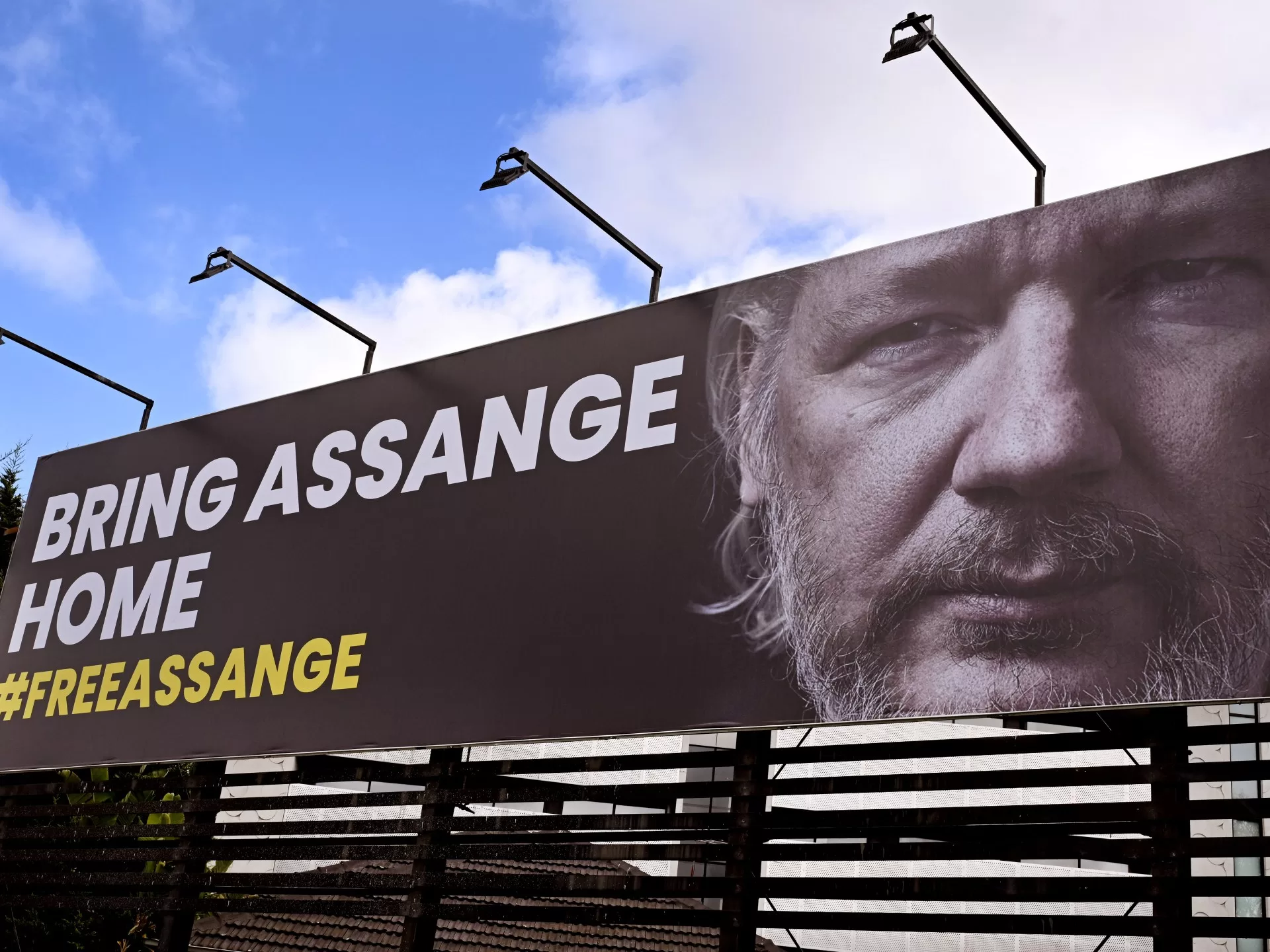Anthony Albanese takes stand against attempts to extradite Australian to US ahead of court ruling next week.
Australian Prime Minister Anthony Albanese has slammed the years-long United States and British legal pursuit of WikiLeaks founder Julian Assange ahead of a court ruling on his appeal against extradition next week.
Albanese said on Thursday that the country as a whole shared the view that “enough is enough”. Assange, 52, is an Australian citizen.
Speaking in parliament after backing a motion on Wednesday calling for an end to Assange’s prosecution so that he can return to his family in Australia, Albanese said, “This thing cannot just go on and on and on indefinitely”.
Judges at London’s High Court are due to rule on Assange’s appeal against extradition to the United States at a hearing on February 20 and 21.
He has spent five years in London’s high-security Belmarsh Prison, battling extradition to the US, where he is wanted on criminal charges over the release of confidential military records and diplomatic cables in 2010. Washington says the release of the documents had put lives in danger.
Assange was arrested after spending seven years in Ecuador’s embassy in London to avoid extradition to Sweden, where he faced accusations of sexual assault, which were later dropped.
Reporting from London, Al Jazeera’s Sonia Gallego said that his supporters fear that Assange could essentially be “put behind bars for the rest of his life”.
“What they’re essentially saying is that it is really the last chance for … Assange to be able to be granted any sort of freedom,” she said at a press conference held by Assange’s supporters.
They said it would be a “terrible thing” for the notion of press freedom, Gallego reported, in essence, “setting a precedent for those who’ve been tried under the Espionage Act to essentially be pawns in the system”.
Geoffrey Robertson, a former legal adviser to Assange, said the whistleblower had suffered enough.
“He’s published details that were available to three million servicemen and officials about American policy and about war crimes that America committed. And this is what he’s got for it,” he told Al Jazeera.
Australia’s parliamentary motion was a “wake-up call” for Washington, he said. He expected that the case would drag on after next week’s ruling. Assange, he said, would eventually have the option of taking his case to the European Court of Human Rights to request an interim order that could halt his extradition.
‘Standing as one’
Albanese said that the Australian government had a duty to lobby for its citizens and that he had raised the issue “at the highest levels” in Britain and the US.
Australia should not interfere in the legal processes of other countries, he said. “But it is appropriate for us to put our very strong view that those countries need to take into account the need for this to be concluded.”
Speaking in parliament on Wednesday, MP Andrew Wilkie, who authored the parliamentary motion, said that it sent a powerful message that Australia stood “as one” on the matter, he said. “Regardless of what you might think of Mr Assange, justice is not being served in this case now,” he said.
Pleased to see @AlboMP give his strongest, clearest and most detailed statement on Julian Assange in the Federal Parliament today in response to my question. Please see full question and response at https://t.co/ZBZiBuP39h. #FreeAssangeNOW #auspol #politas
— Andrew Wilkie MP (@WilkieMP) February 15, 2024
